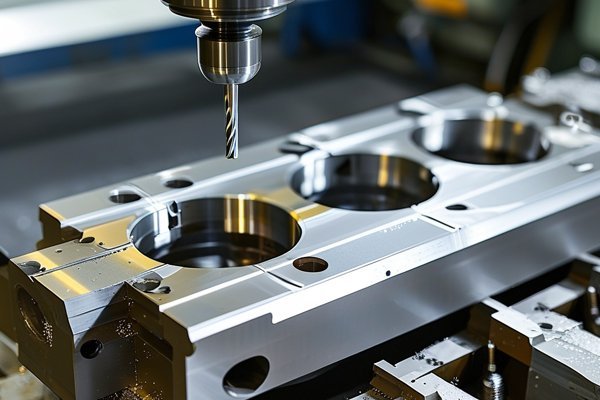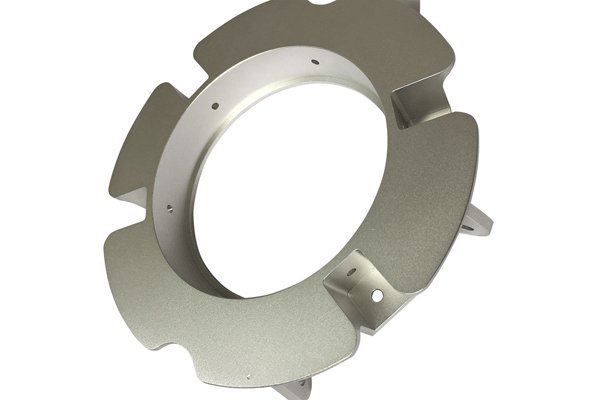Did you know that CNC machining can streamline the production of components with intricate geometries, minimizing both time and material waste? The innovative world of computer numerical control (CNC) machining has radically transformed the manufacturing landscape, allowing engineers and designers to create extremely complex parts with unparalleled precision. In today’s fast-paced production environment, the ability to create highly customized components is not just a luxury; it’s a necessity. This blog will dive deep into the capabilities of CNC custom machining, exploring its suitability for the intricacies involved in customizing highly complex parts.
Understanding CNC Machining
At its core, CNC machining is a process where computer software controls machine tools to cut, shape, and manufacture parts from various materials. The technology operates on a digital program that ensures extreme precision, allowing it to produce multiple iterations of a component without variance—a vital factor when working with highly complex designs.
The Evolution of CNC Machining
The advent of CNC machining has revolutionized manufacturing. Initially, manual processes limited the complexity of parts that could be created effectively. However, as technology progressed, the introduction of computers has allowed for advanced software and machine interfacing. Today, CNC machining can achieve complex geometries, smooth surfaces, and fine details previously deemed impossible.
Advantages of CNC Machining for Complex Parts
Application of CNC Custom Machining in Various Industries
Challenges in Custom Machining of Highly Complex Parts
While CNC machining offers several benefits, it also presents challenges when it comes to producing highly complex parts. It’s crucial to understand these challenges to develop effective solutions.
Technological Challenges
Process-Related Challenges

Solutions for Overcoming Challenges in CNC Custom Machining
Overcoming the challenges associated with CNC machining complex parts requires a combination of technology, expertise, and strategic planning.
Leveraging Advanced Software
Utilizing advanced CAD/CAM software can enhance the programming process, allowing for easier handling of complex geometries. The latest software solutions also provide simulation features that help visualize the machining process, minimizing errors before actual production begins.
Implementing Tool Path Optimization Techniques
Adopting tool path optimization methods, such as advanced algorithms, can significantly reduce machining time while increasing quality. Techniques such as adaptive machining allow the tool to adjust its path dynamically based on real-time feedback.
Selecting the Right Materials
Choosing the right material is crucial; manufacturers must evaluate both mechanical properties and machinability. Employing material substitutions or hybrid composites can provide the necessary balance between complexity and performance.
Regular Tool Maintenance
Establishing a proactive tool maintenance schedule will allow for immediate replacement or sharpening of tools, ensuring that precision is always upheld throughout the machining process.
The Future of CNC Custom Machining
As advancements in technology continue to unfold, CNC custom machining is anticipated to evolve significantly. Enhanced automation, AI integration, and the use of machine learning to predict tool wear and machining times promise to refine the efficiency and capabilities of CNC machining.
Industry 4.0 and Smart Manufacturing
The rise of Industry 4.0 emphasizes the infusion of data-driven processes into manufacturing. CNC machining will likely integrate with IoT devices, enabling better monitoring, real-time feedback, and the potential for predictive maintenance.
Adding New Materials to the Arsenal
Continued research and development are expected to yield new materials specifically designed for CNC machining. As more materials with enhanced properties become available, the complexity and capability of CNC machining will further expand.
: The Significance of CNC Custom Machining for Complex Parts
In conclusion, CNC custom machining stands as a pivotal solution for the production of highly complex parts across numerous industries. The precision, efficiency, and adaptability offered are unmatched by traditional manufacturing methods, making it an invaluable technology in today’s market.
As we have explored throughout this blog, the path to harnessing CNC machining effectively requires a clear understanding of its challenges and solutions, along with an eye toward future advancements that can enhance its role in manufacturing.
Whether you’re an engineer, a designer, or a business leader, the unique capacity of CNC machining to bring ideas to life is a reality that is worth considering. With the evolution of technology and the increasing demand for customization, embracing CNC custom machining could very well be the key to staying at the forefront of the manufacturing sector.






